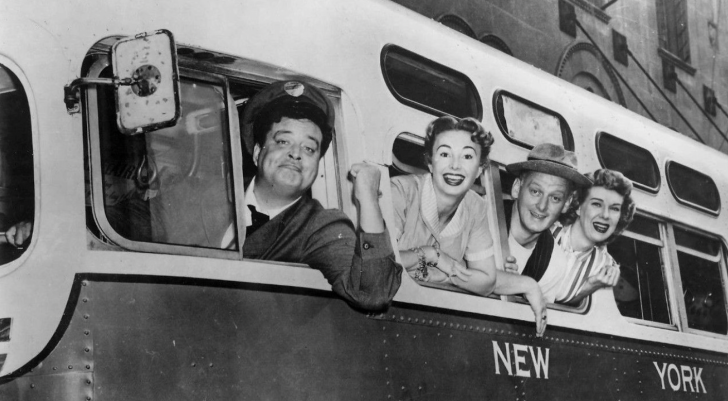Whitcomb: Icy Euphoria; Stack ‘Em! Explosive Issue; German Class Divide; Our Writers
Sunday, January 21, 2024
“Life, friends, is boring. We must not say so.
After all, the sky flashes, the great sea yearns,
we ourselves flash and yearn….’’
-- From “Life, Friends, Is Boring, We Must Not Say So,’’ by American poet John Berryman (1914-1972)
“Go into the street and give one man a lecture on morality and another a shilling, and see which will respect you most.’’
-- Samuel Johnson (1709-1784), famed English writer and lexicographer
“The biggest beneficiary of Pax Americana was America, and it’s worth making that argument over and over again.’’
“The value for the money of what you’ve put in is astounding. What is it? Something like maybe 10 percent of your defense budget used by the Ukrainians has destroyed half of Russia’s prewar military assets. Now, if that isn’t a good investment, I don’t know what is.”
"This is like being a foreign minister or a leader of Europe in the 1930s, we have got to not appease Putin. We have got to stand up to the evil that his invasion represents.’’
-- British Foreign Secretary David Cameron, in making a plea to the U.S. House to restore military and other aid to Ukraine lest it lose the war, opening up much of Europe to further Russian military and other aggression, with grave threats to U.S. economic and other security.
When I was a kid, we used to skate for several weeks each winter on a little pond in the woods near our house. It froze remarkably solid, especially considering that from time to time some salt water would get into it from a nearby marsh behind a beach.
We’d skate around in phases of euphoria and then sit by a fire we built along the shore, sometimes cooking hot dogs and marshmallows. It’s surprising that we never ignited the thick stands of very dry-looking high sedge nearby. The boys would, from time to time, play chaotic games of hockey, using boots as goal markers.
In one of these games, I fell on my right elbow and was rewarded with a compound fracture. That, in turn, necessitated a hospital stay over the Christmas holidays of 1963 and some rather exotic procedures, presided over by a Dr. Mayo (!), whose first name is long lost to me.
Ah, the joys of morphine!
To hold my arm in the proper position for maximum healing, I had a cast around my chest for several months, with my arm stuck out as if I was about to shake hands. I still vividly recall the discomfort of taking tests with my left hand. And the itch under the cast…
I didn’t join in pond hockey games after that, though I went skating on the pond a few times, but its charms had faded for me.
Back in 2020, I lunched with a neighbor from those times, since deceased, who told me that no one skates on that pond anymore. The weather doesn’t stay cold enough, long enough anymore, he said.
Make the Old New Again
There are moves afoot in Greater Boston and some other New England communities to encourage a revival of “three-decker’’ housing – those stacked structures, usually with porches, that housed so many working-class and immigrant families from the late 19th Century to the early 20th, in cities and many small mill towns, too. They’re economical to build and to live in.
For a long time, these buildings were viewed in many communities as a blight, and for decades before the wide use of smoke alarms and other fire-prevention devices and procedures, they were the scenes of lethal fires, often ignited by unmonitored space heaters, be they powered by propane or electricity. (I saw a few such fires when I was a reporter in Boston.) People with higher socio-economic status looked down on the buildings and those who lived in them.
(The safest and most cost-effective space heaters are those oil-filled portable radiators, which, though they take a while to heat up, have no flames or red-hot surfaces. And they provide a nice steady heat.)
But now, as many New Englanders confront a lack of housing that they can afford to live in, three-deckers are looking better and better. Perhaps developers will stack a third floor on some two-deckers.
Planners, whenever possible, should encourage the building of three-deckers and other “affordable” multi-family housing near public transit to make it easier for low-and-middle-income people to go to work, school and shop. We need a mix of housing types to accomplish this.
xxx
As more people use electric vehicles, thus reducing the money available from the federal gasoline tax (which hasn’t been raised since 1993!), policymakers must eventually turn to taxing drivers for using major highways (not just turnpikes) to help pay to maintain them and for public transit. User taxes are generally the fairest levies, and highway-use taxes encourage people to use mass transit, thus reducing traffic congestion.
Trucking companies already pay highway-use taxes on their heavy vehicles to fund some of the repair work for damage they do.
xxx
While reading Rhode Island Gov. Dan McKee’s State of the State address last week, with its outstandingly repetitious phrases, I again thought that state policymakers should have a simple, if difficult, mission: To make Rhode Island’s policies as competitive as possible with Massachusetts’, while factoring in that the Ocean State is considerably poorer. It has the 17th highest per-capita income, while Massachusetts is ranked first and Connecticut second. And Greater Boston is a world-class technological, research and medical center. At best, Rhode Island can be a prosperous appendage of the center.
Back Into the Swamp
“If a politician found he had cannibals among his constituents, he would promise them missionaries for dinner.’’
-- H.L. Mencken (1880-1956), Baltimore-based writer, editor and scholar
What media hype about the ridiculous Iowa GOP/QAnon caucuses! Trump got 51 percent of the vote! This was out of the only 15 percent of the Hawkeye State’s nearly 720,000 registered Republicans who actually showed up to caucus! On the other hand, most of the people who voted for candidates other than Trump in the caucuses would probably vote for him in the general election.
Of course, Trump voters include many cultists who would vote for their favorite traitor, thief, sexual assaulter and non-stop liar regardless of what he does and what happens in the wider world. (A fine role model for their kids!) They love his celebrity act, which says something about their character, too, as he throws ever more gasoline on their heaps of flaming grievances. They want a dictator who will smite their perceived enemies. Even amidst the ruins of 1945 Germany, Hitler still had fans.
Perhaps theologians and historians can best deconstruct the “Christianity’’ that Trump’s loyal “Evangelical” supporters -- very important in Iowa --assert they’re part of. They’re another reason that so many young Americans are staying away from organized religion.
But yes, yes, plenty of Trumpers just like his policies, as contradictory as many of them are, even if they dislike his style, and will calmly vote for him in the hope, say, that he’ll cut their taxes (Deficit? What deficit!?), slash regulation and abandon pesky foreign obligations.
Meanwhile, it will be interesting to see how Samuel Alito and, particularly, Clarence Thomas, deeply corrupt members of the U.S. Supreme Court, address states’ challenges to Trump being on their ballots in light of the Insurrection Clause in the U.S. Constitution’s 14th Amendment.
Thomas and Alioto are on the take from rich right-wing businessmen.
xxx
I’ve written about the Biden administration’s immigration-control plan, most of which is reasonable and would go far to address the crisis. But it would cost billions of dollars -- to pay for more Border Patrol people and other border security, as well as immigration judges and so on. But the powerful nihilistic contingent of House Republicans are blocking any immigration reform because they fear it would help re-elect Biden. So, at this writing, it seems that nothing will happen this year, which could result in electing Trump.
Immigration is one of those hot-button issues that’s readymade for highly effective demagoguery, at home and abroad, as many millions of migrants from Third World nations seek to get into developed nations by hook or by crook. Whatever the dangers they face, they’ll keep coming because of economic ambition, as well as poverty, tyranny and environmental crises in their countries.
Obviously, we can only take in a small minority of those who want in.
Democrats are generally much less ruthless and energetic than the GOP/QAnon in political wars. They bring squirt guns while Republicans bring knives. If the Democrats were smart, they’d pour money into ads in all major media saying – accurately – that GOP/QAnon pols are stopping all major attempts to address the immigration mess.
Biden would be wise to soon give a prime-time speech laying out his administration’s immigration program. Because of the nihilists in the U.S. House it probably won’t go anywhere in this session, but it could save him from losing next November because of this incendiary issue.
But wait! At the end of his speech, he should announce that he won’t run for re-election after all and pledge to commit all of the rest of his term to addressing daunting national and international issues, while encouraging much younger and more dynamic candidates to seek the Democratic nomination.
In any event, the next administration should push through reforms to better favor more highly skilled immigrants, who could help America keep its technological and economic edge. The grossly outdated, because of politics, U.S. immigration “system’’ has stupid barriers to attracting and keeping them, even as the flood of low-skilled migrants continues to push against our southern border. Most of them are hard workers, but America’s long-term security requires that we welcome many more skilled workers, in technology, medicine, manufacturing and other fields.
Income Inequality There, too
Income inequality fuels far-right “populist’’ politics in other nations, too, such as in Germany.
That’s even as the policies of such populist parties as the GOP/QAnon and Germany’s Alternative for Germany would widen inequality further through tax and other policies that favor the rich.
Of course, even Western countries’ histories, cultures and economics are so different from each other as to make discussing similarities problematic, but Americans would do well to follow what’s happening in Europe’s biggest economy.
As Bloomberg News’ Chris Bryant wrote:
“Echoing the vituperation of Trump supporters and France’s yellow vests, and fanned by similar social media echo chambers and suspicion of mainstream media, this polarization is nevertheless shocking for a country that prides itself on cohesion and shared prosperity.’’
Oh great! The cancer that is Iran and the cancer that is Pakistan are attacking militant groups in each others’ countries. Ah, the Muslim world – that seamless web of 7th Century theology, nationalism, geopolitics and kleptocratic dictatorships. If only we could avoid it entirely. But the world is too small for that.
Cast of the Honeymooners: Jackie Gleason, Audrey Meadows, Art Carney and Joyce Randolph PHOTO: Public Domain
‘To the moon, Alice!’
The last of the cast of The Honeymooners, Joyce Randolph, has died at 99, bringing back memories of the early days of television.
The gritty TV sitcom, of course in black and white, which originally was broadcast from 1955 to 1956, was created by Jackie Gleason. It followed the lives of Brooklyn bus driver Ralph Kramden, played by Gleason; his wife, Alice, played by Audrey Meadows; Ralph's best friend, Ed Norton, a sewer worker, played by Art Carney, and Ed's wife, Trixie, played by Ms. Randolph, as they get involved with various mostly idiotic schemes. While it sometimes sounded sexist, with the Ralph Kramden character seeming to threaten Alice with the likes of “To the Moon, Alice!,’’ in fact, the oft-exasperated house wives, with hands on hips or arms crossed, were very much in charge of their buffoonish husbands.
It was a like a stage show, with the Kramdens’ kitchen the setting of almost all of the action and yakking. But in any case, we kids thought it was pretty funny, even though it was about marriages.
It was a simpler time, not better, just simpler.
Our Writers
Two books here of particular interest to New Englanders.
First, there’s the famous critic and literary historian Malcolm Cowley’s (1898-1989) New England Writers and Writing, put together after his death and published in 1996. He discusses such celebrated writers as Nathaniel Hawthorne, Ralph Waldo Emerson, Robert Frost, Thornton Wilder, John Cheever and E.E. Cummings.
But he also adds some commentary, some of it quite poignant, on his adopted hometown of Sherman, Conn., which was quite rural and had lots of farms when he moved there in 1936, but eventually became exurban, as I noticed when I visited friends there in the early ’70s. A chapter is titled “Is There Still Hope for Farming in New England?’’ He also pays tribute to the beauties and history of the Housatonic River Valley. (It’s much cleaned up now from the cancer-causing pollution that used to be caused by General Electric and other companies dumping PCB’s and other industrial compounds into it.)
Then, there’s Contemporary New England Stories (1992), edited by C. Michael Curtis (1934-2023), who was a senior editor at The Atlantic. It’s a superb collection of late 20th Century short stories, most of them connected in varying degrees with the region. Writers include Andre Dubus’s “A Father’s Story,’’ John L’Heureux’s “Clothing,’’ Joy Williams’s “The Skater,’’ Robert Stone’s “Helping,’’ E.S. Goldman’s “Way to the Dump’’ and Susan Minot’s “Thanksgiving Day.’’
There’s a wide, wide range of styles, characters and points of view.
While all sections of America have spawned distinguished writers, New England seems to have the richest literary tradition.
Why? I’d point to its long history of literacy coupled with intensive public and private education dating back to the highly literate Puritans, its waves of immigrants, its mix of cities, small towns and countryside in a compact region and even its, well, dynamic weather.

Robert Whitcomb is a veteran editor and writer. Among his jobs, he has served as the finance editor of the International Herald Tribune, in Paris; as a vice president and the editorial-page editor of The Providence Journal; as an editor and writer in New York for The Wall Street Journal, and as a writer for the Boston Herald Traveler (RIP). He has written newspaper and magazine essays and news stories for many years on a very wide range of topics for numerous publications, has edited several books and movie scripts and is the co-author of among other things, Cape Wind.
Related Articles
- Whitcomb: 75 Should Be the Max for Feds; No Pardons; Competition for Amtrak; COVID Camouflage
- Whitcomb: Instant Trouble; Buying ‘Em Out; Charging as You Drive
- Whitcomb: Soak Up the Extra Water; Death Be Proud; Honestly Facing the Migrant Crisis; Mitt Gives Up
- Whitcomb: Fall Fish; Lunching With the Prince; Autumn Assault; Classics
- Whitcomb: More $ Up the Road; Publicly Owned Utilities; Slob Society; Conscription
- Whitcomb: “Improvements’ That Turn on Us; Offshore Obfuscations; Seal of Disapproval
- Whitcomb: Warm Up the Warming Issue; In Search of Supplies; Home Hell and Comfort
- Whitcomb: I Headed for the Hills; Ukraine Needs These Things; Antidote to Abortion War?
- Whitcomb: Armory, Our Inconvenient Castle; Bikes and Business; ‘Woke’ Myth; RIP Reynolds
- Whitcomb: Heartwarming Entertainment in Arctic; Can’t Win on Immigration; Parking Districts
- Whitcomb: Diversify Your Plants; Where to Charge It; Suckers in Sewer; For Fairer Social Security
- Whitcomb: Month of Mock Horror; Zoning Revolution? A Much Bigger Looter
- Whitcomb: Global-Warming Planning; Native-American Street Signs; Israel at War
- Whitcomb: Price of Delay; Old College Try; What Gazans Think; Canadian Housing; Holy Relic
- Whitcomb: Brief Joys of Snow; Locals vs. the Chains; History Building; Putin’s Congressional Friends
- Whitcomb: Time Sort of Suspended; Don’t Get Trapped; 3 Better Candidates; Plague Years
- Whitcomb: Drinking Into the New Year; Holiday-Card History Lessons; Revive Counties?
- Whitcomb: Toxic Status Seeking; Finally Into the Grid! Who Runs Universities?
- Whitcomb: Maudlin Song Season; Good Local News; Haley and Social Security
- Whitcomb: Rewilding; Staffing Crisis; Drivers’ Dues; Bonkers in Buenos Aires
- Whitcomb: Metered Metropolis; Will They Kill a Golden Goose? Lawless Migrant Bicyclists
- Whitcomb: Absent Fathers, Absent Students; Less Video, More Historians, Please
- Whitcomb: Downtowns as Amusement Parks; Quiet!! Office Life; Northeast Corridor Good News
- Whitcomb: Thanksgiving; Bobby’s Business; Foreign News; Beach Day; What Sort of Freedom?
- Whitcomb: ‘Poor Farmers’ Fertilizer’; Dubious ‘Stars’; Pells and Plumbers; Regressive Taxes









